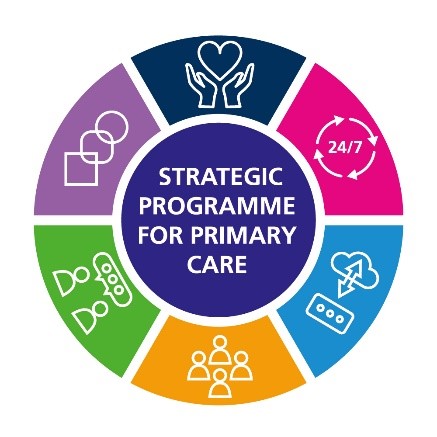About us

This resource
Demonstrates examples of ‘lived experience’ of service delivery efficiencies and improvements through managing local difficulties with effective workforce planning.
Provides the reader with information and an evidence base for re-shaping the local workforce to meet local population care needs by emphasising skills over roles.
How does this fit into the wider health and social care landscape of Wales Today?
The Primary Care Model for Wales, as set out in the Welsh Government’s plan for health and social care : ‘A Healthier Wales’, advocates seamless working across different services, to increase efficiency and ensure the local community can access clinical, social and managerial expertise in a more effective way. Coordinated teams, designed to meet local community needs, will promote cultural change and move away from traditional utilisation of roles to instead optimise skills in all roles within primary care, (clinical and non-clinical), thereby aiding the transformation of how services are delivered in future.
Who are the case study participants?
Participants were sought from the workforce who could demonstrate one (or more) of the qualities below and talk about their work to raise awareness in peers and provision commissioners of how the workforce can be better shaped and optimised to meet local requirements and promote a better understanding of what we already have that works well.
- Work to the top of their licence to better meet local health & well-being needs
- deliver care in a new or innovative way that benefits the local population
- Experience of a new or innovative model that has shown good results
Participants had their responses to a few questions captured on video about their role or service model and how they felt about it. Source materials such as Job Descriptions, policies and standard operating procedures are provided to support their spotlight video.
All models, roles and titles were correct at the time of publication.
 Cymraeg
Cymraeg English
English 




